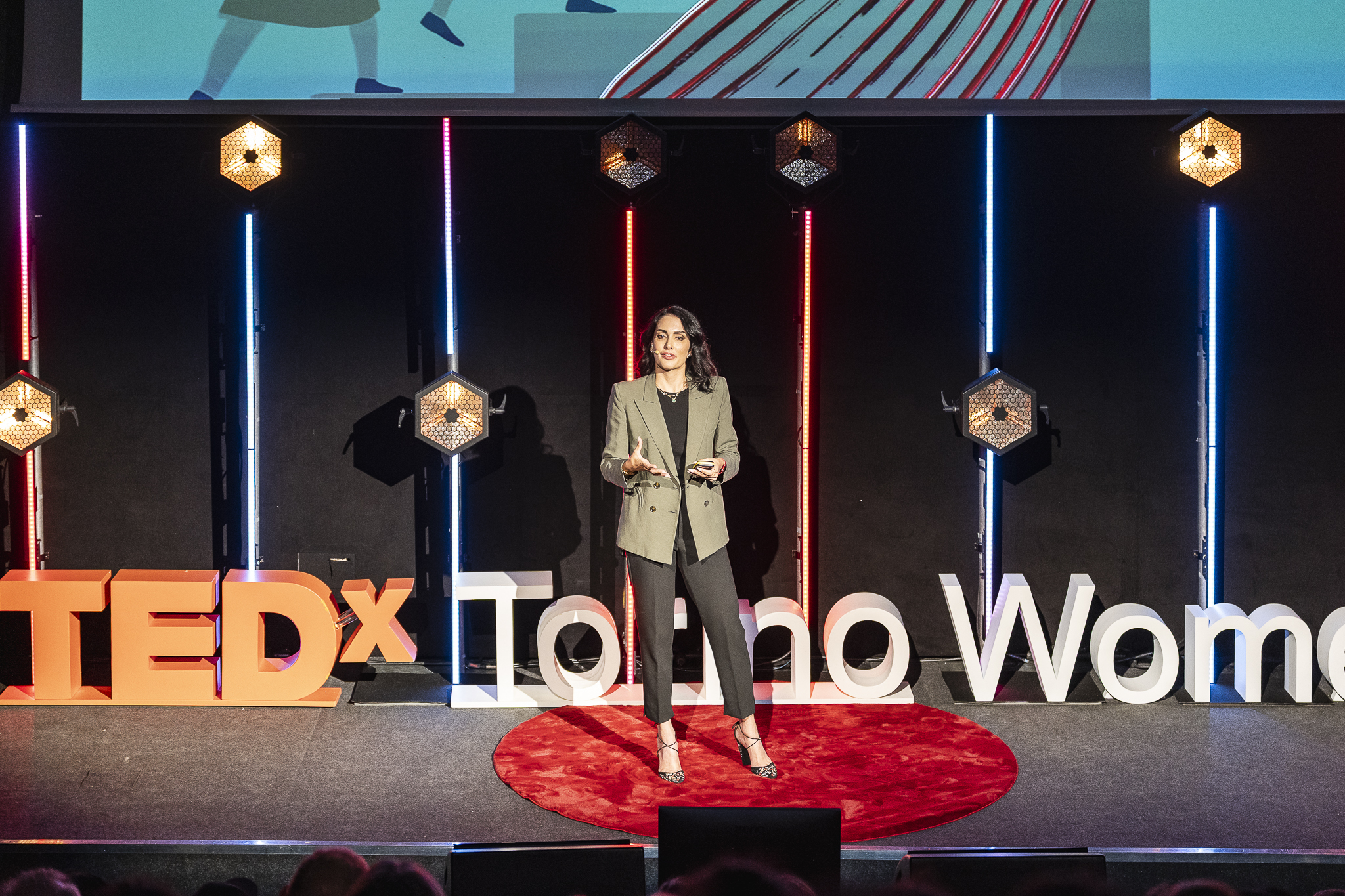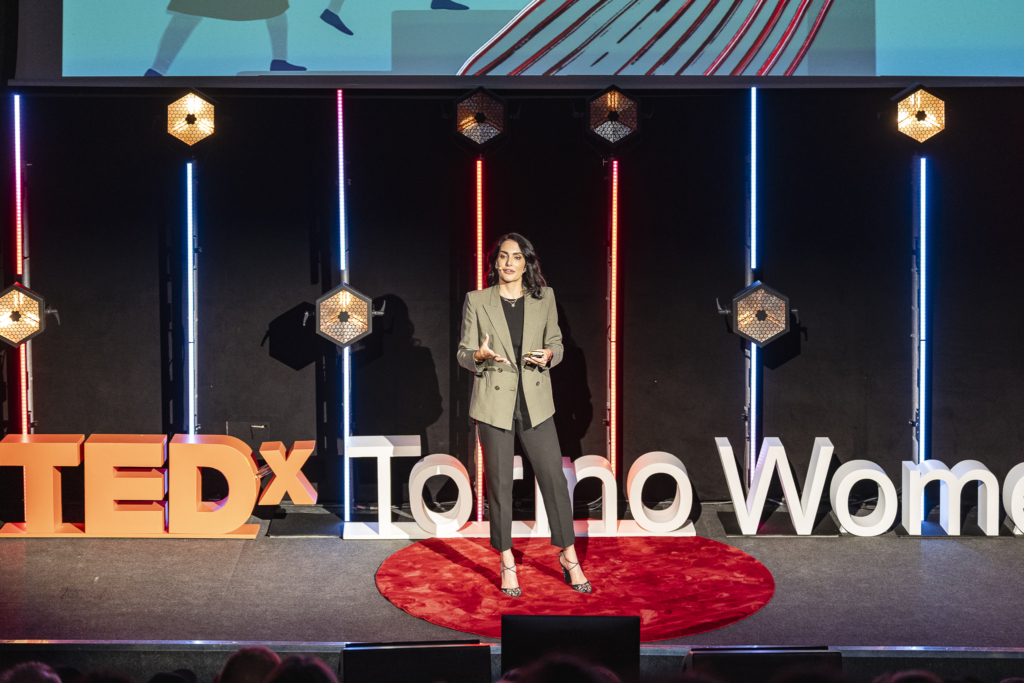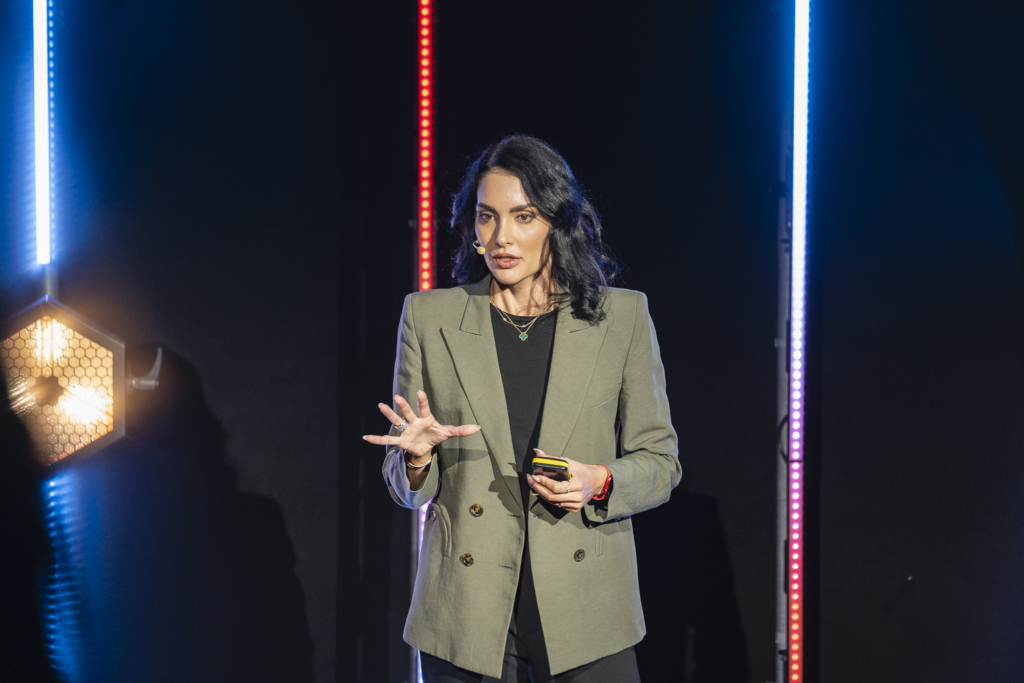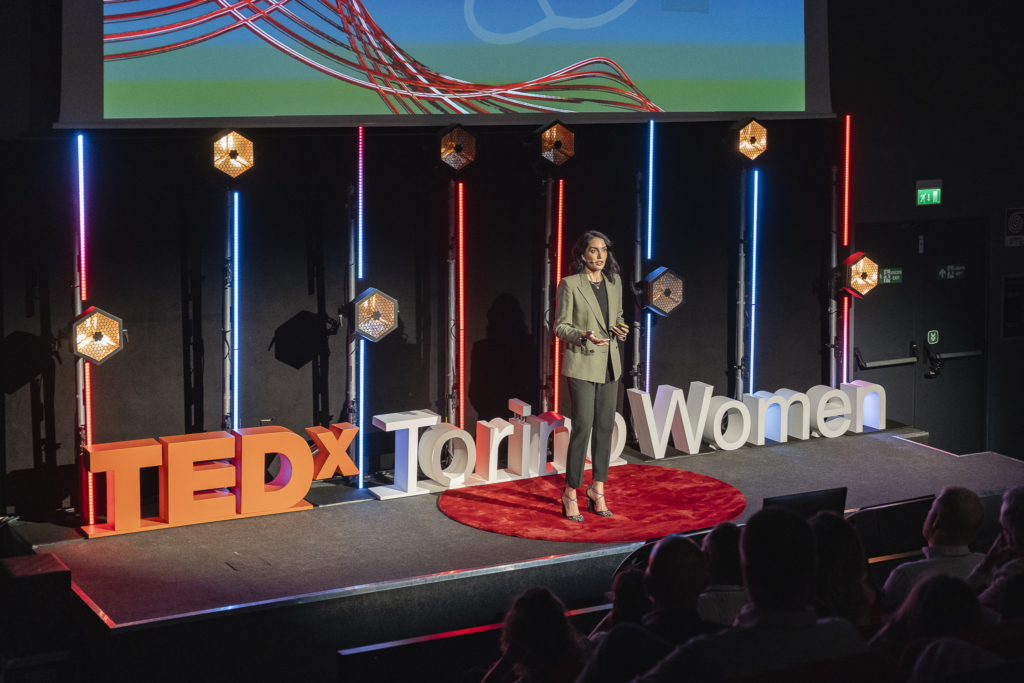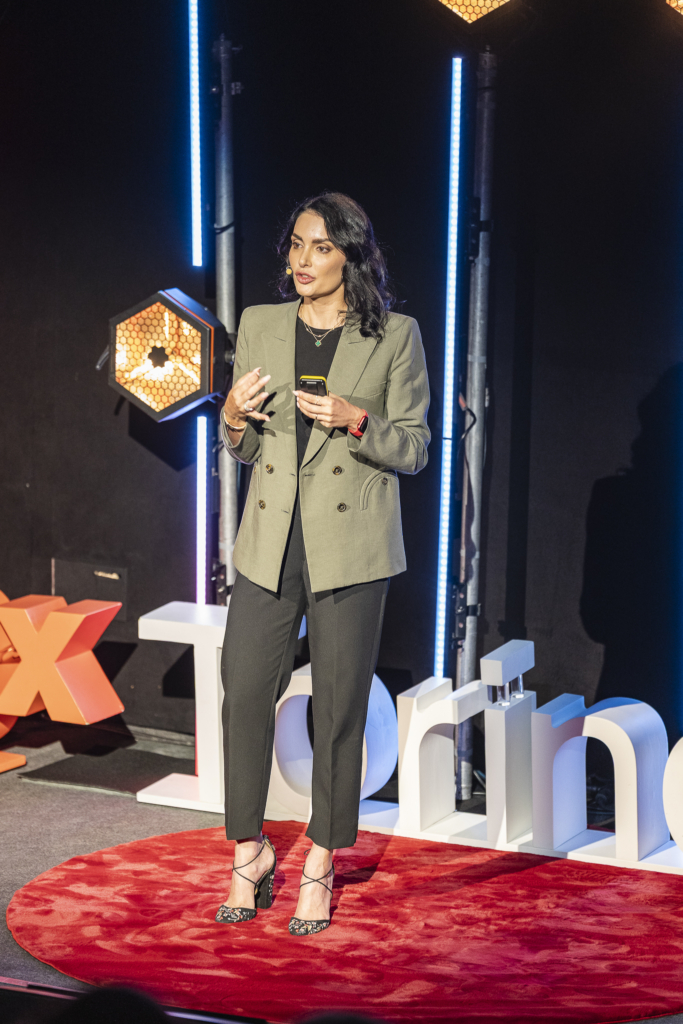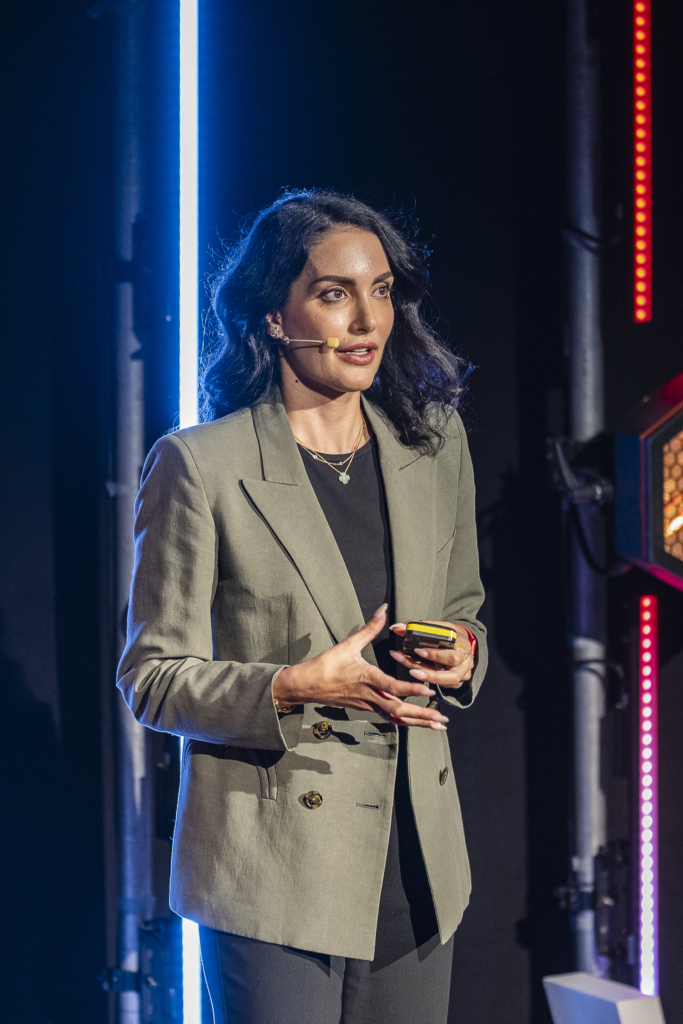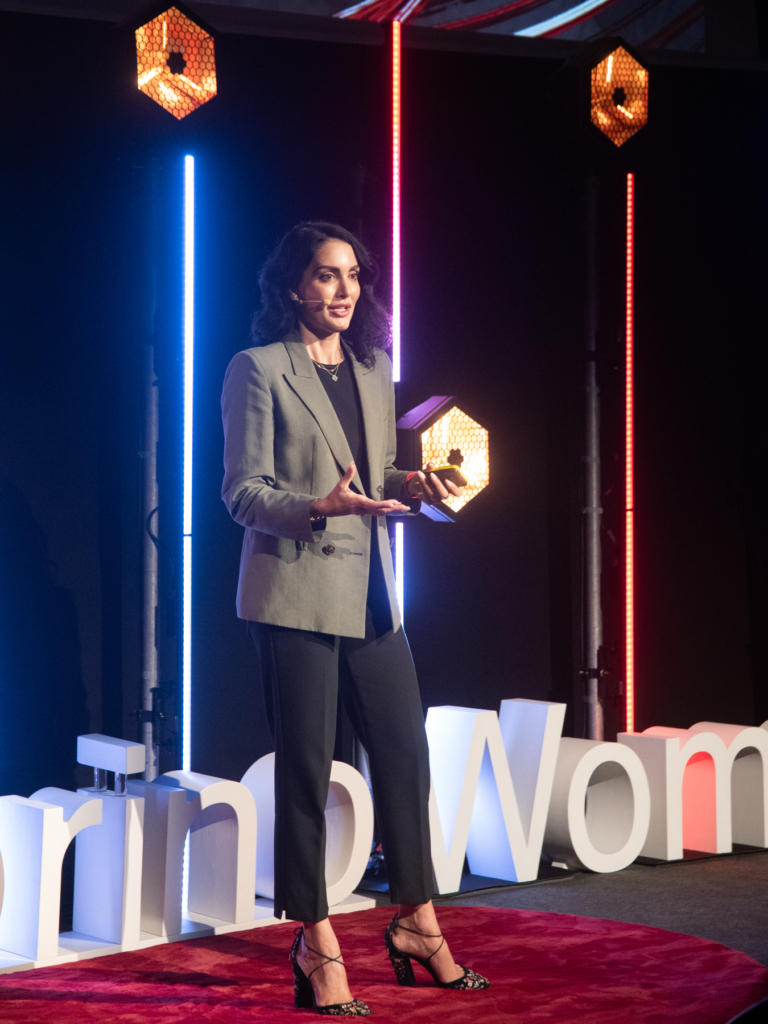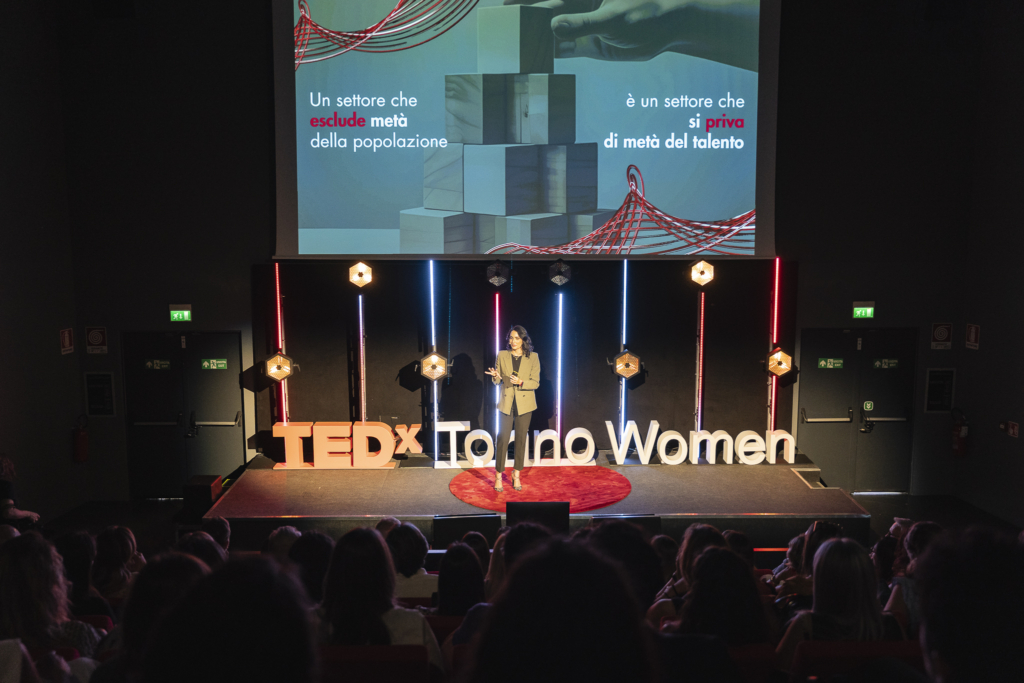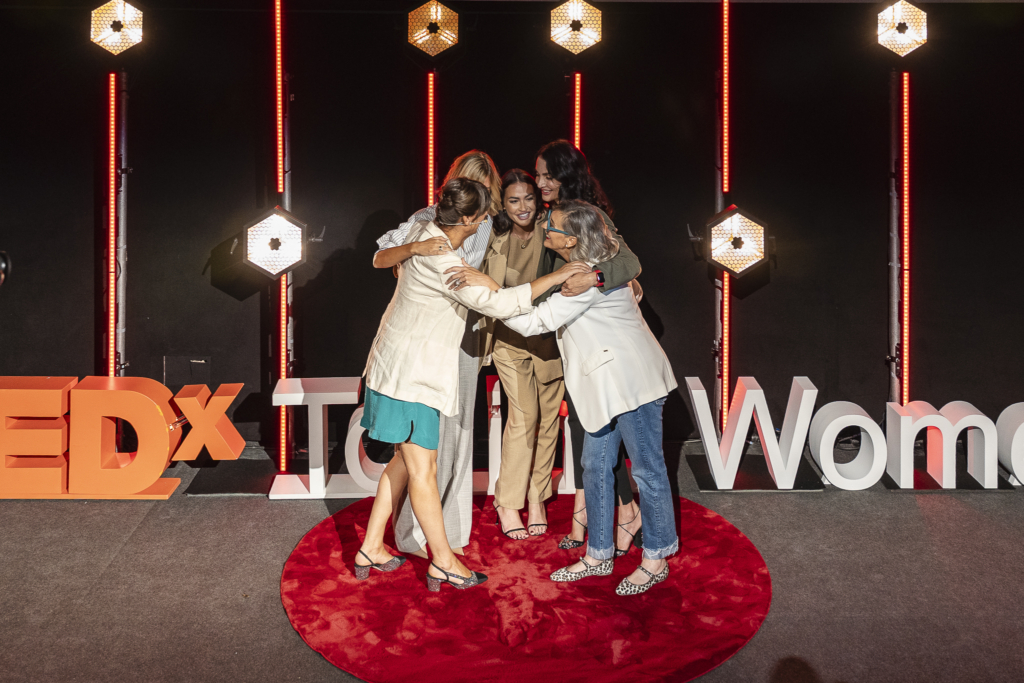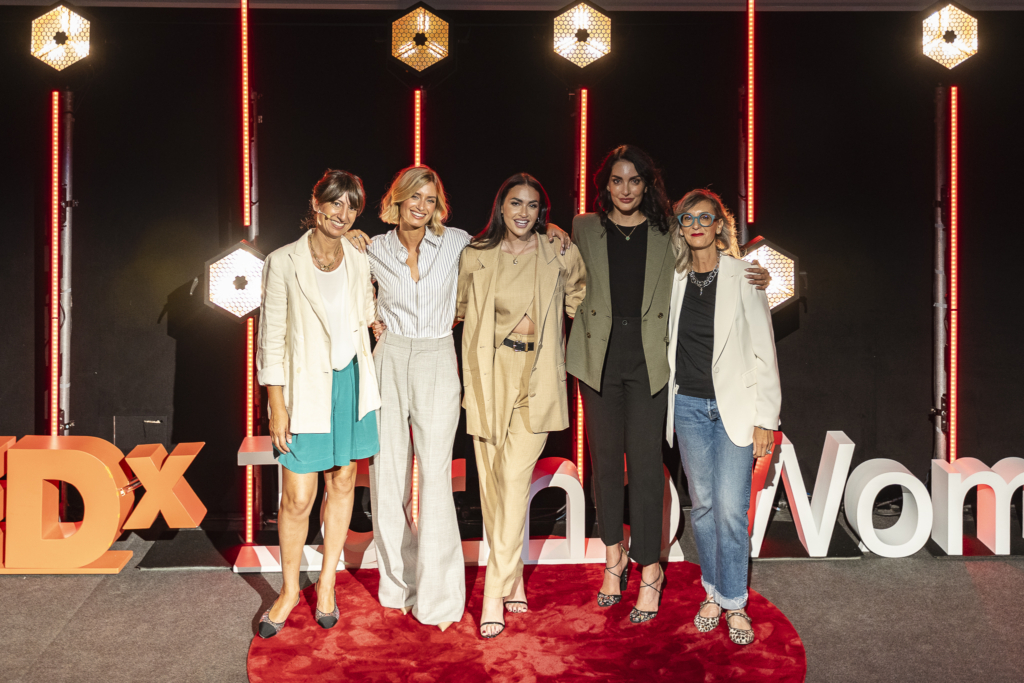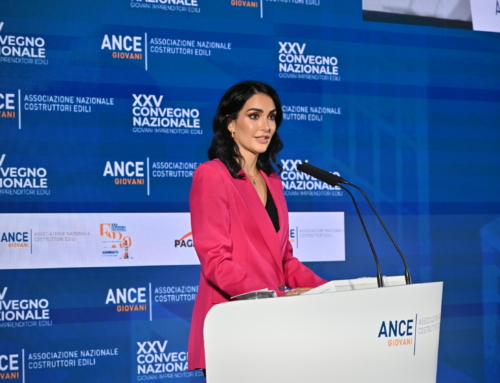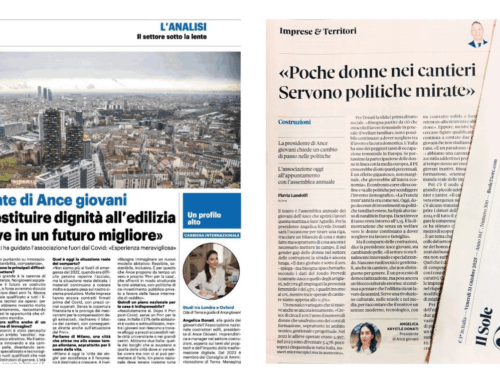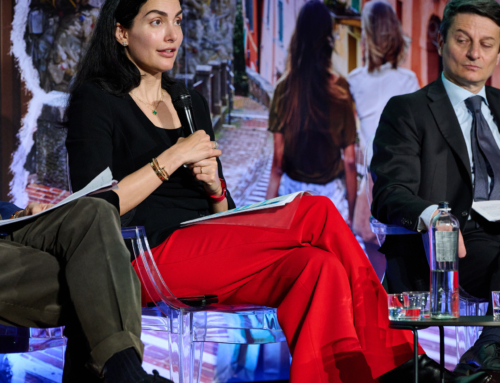Angelica Donati participated in TEDx Torino Women, alongside Giulia Arena, Giulia Gaudino, Debora Ghisolfi, and Elisabetta Marangoni, to talk about female leadership.
“The world of work is changing, and every sector — including construction — needs female talent, now more than ever. It’s not enough to open doors: we need to change the culture, overcome bias, and start building networks, alliances, and mutual trust.”
Paths: women, work, and inclusion
Angelica Donati at TEDxTorino Women – July 8, 2025, Turin – National Automobile Museum
In Italy, women make up less than 10% of the construction sector. It remains a male-dominated industry, despite slow but steady growth in female participation. But it’s not just about numbers. The issue runs deeper: it’s about an entrenched culture made up of invisible barriers, stereotypes, and predefined roles. And yet, something is changing.
Today, we can chart new paths. Like many other sectors, construction urgently needs skills to support its ongoing transformation. This need has begun to break down long-standing prejudices — such as the idea that competence is a male trait. The data is clear: women represent over 55% of university enrollments and are increasingly choosing Architecture and Civil Engineering programs.
Despite this, access to education still doesn’t translate into full inclusion in the workforce. But the technological and ecological transformation of the construction sector has opened up new opportunities. There are no longer “men’s” or “women’s” roles — there are roles for competent people.
The presence of women in construction is not just a sign of progress: it is a strategic necessity. A sector that excludes half the population deprives itself of half the talent. Gender-balanced workplaces are stronger, more innovative, and healthier.
We are breaking down barriers that once seemed insurmountable. We see it in companies investing in female leadership, in teams that value diversity, in young people who reject a prepackaged future. But a new awareness is also needed among women themselves. How many times, after a positive judgment, do we still hear a “but”? “She’s good, but…”
It’s a deep cultural legacy. A culture that has excluded women from key roles and, even more so, from informal networks of power. It’s no surprise that men find it easier to build alliances. Male clubs and exclusive settings have deep historical roots. Women, historically, haven’t had the same spaces.
Today, many still find themselves alone or in competition. The idea that there’s only one seat at the table fuels rivalry. But that can’t be the way forward. If we stay stuck in this mindset, we’ll keep holding each other back. Recognizing this mechanism is the first step to overcoming it.
Because the success of one woman is not a threat — it’s a lever for the success of all. Those who paved the way — in business, politics, and science — have created opportunities for others. Change also comes from this: no longer having to explain, justify, or soften. The issue is not about “being a woman in a male sector,” but about how that role is told, perceived, and lived. And how we choose to inhabit it.
That’s why we must build, together, a new language. Remove the “but” and replace it with an “and.” Say: “You are competent, and that role is for you.” Because the real challenge is not just entering the workforce — it’s staying in, growing, and making an impact.
The real obstacle today is structural. Women still spend twice as much time as men on care work. And too often, they are forced to choose: career or motherhood. Another “but”: “You can succeed, but not too much.”
We need a new social pact. We need welfare policies, accessible care services, fair parental leave, true — not precarious — flexibility. We need incentives for companies that believe in equality, clear career paths, and impact assessments.
Equality cannot just be proclaimed. It must be built — with daily choices, strong alliances, and courageous institutions. If female employment in Italy reached the same level as male employment, our GDP could grow by 12% by 2050, according to the European Institute for Gender Equality.
But before the numbers, we need a mindset shift. A shift that begins with each of us. With those who have already made it and reach out a hand. With those still finding their path. With those who refuse to believe that another woman’s success is a threat. Instead of waiting for the system to change, let’s change it. Together. Because female talent is not an individual achievement — it’s a collective asset. It’s a new social grammar.
My invitation is this: let’s take a step — toward those with talent; toward those who need a chance; toward a future where a little girl can be told: “You can do anything.” Change is not far off. It’s in every gesture, every choice, every word — and we must start building it together.
